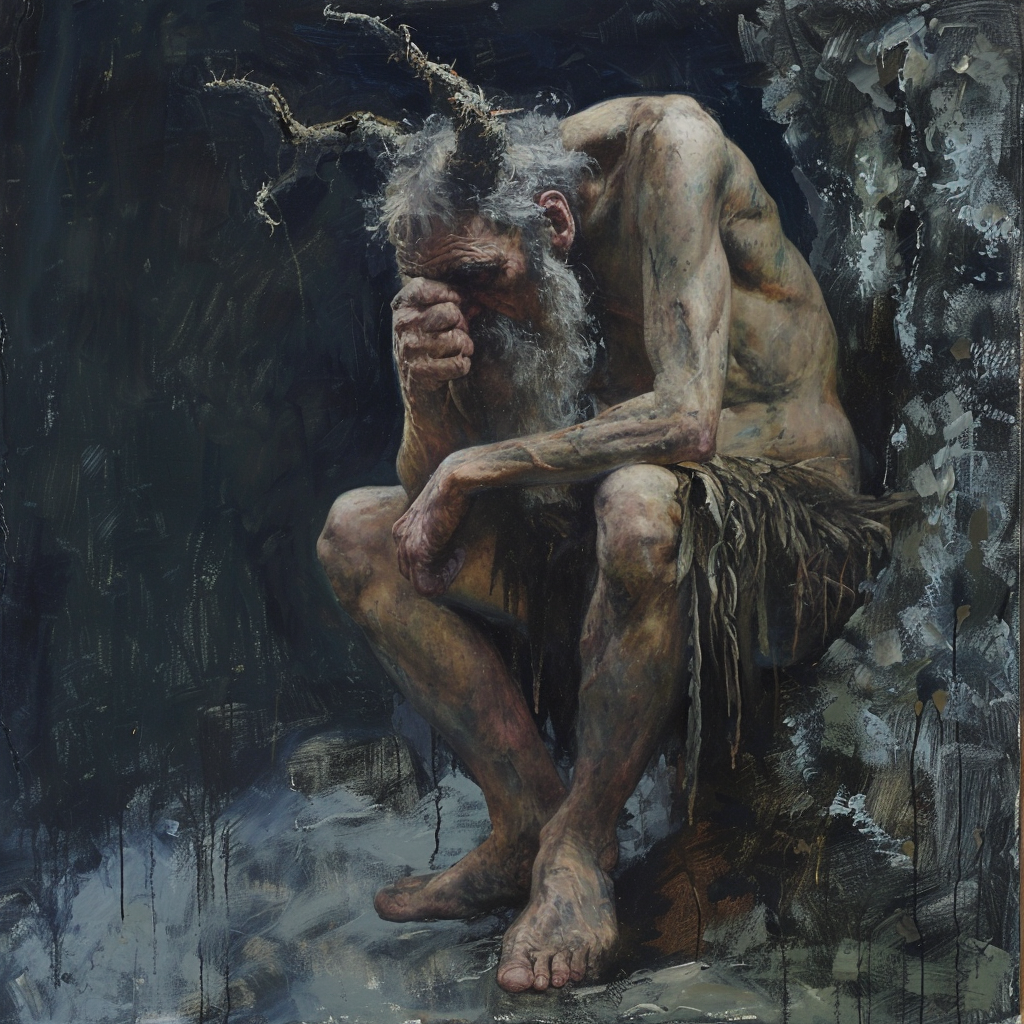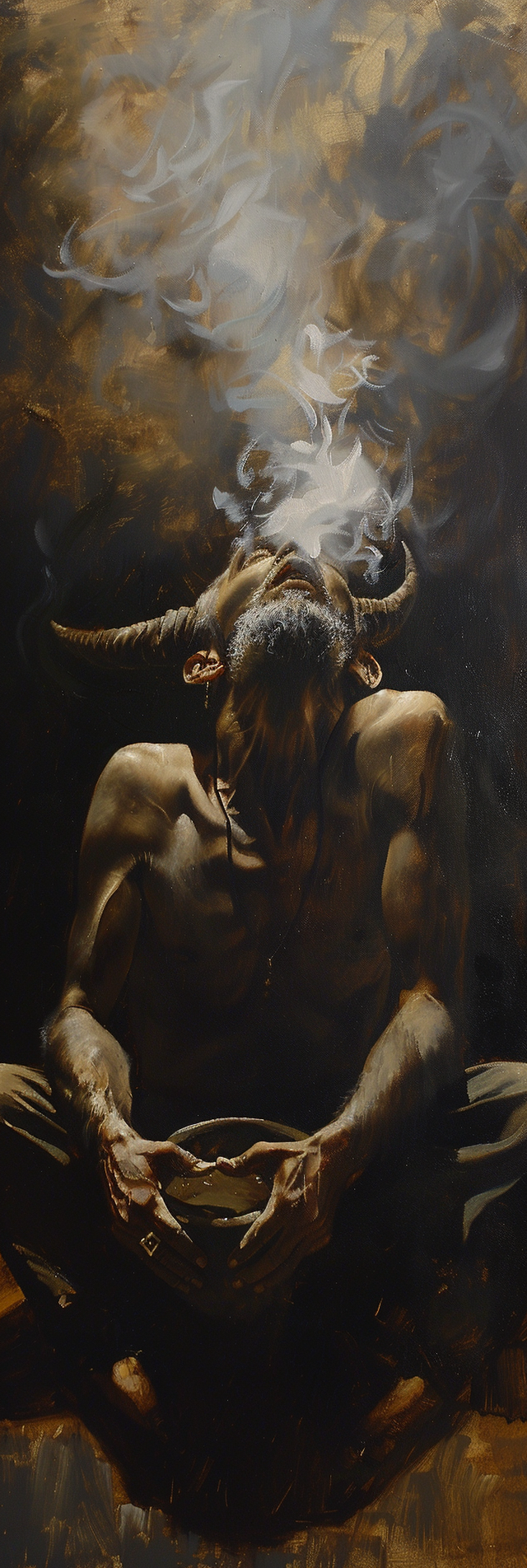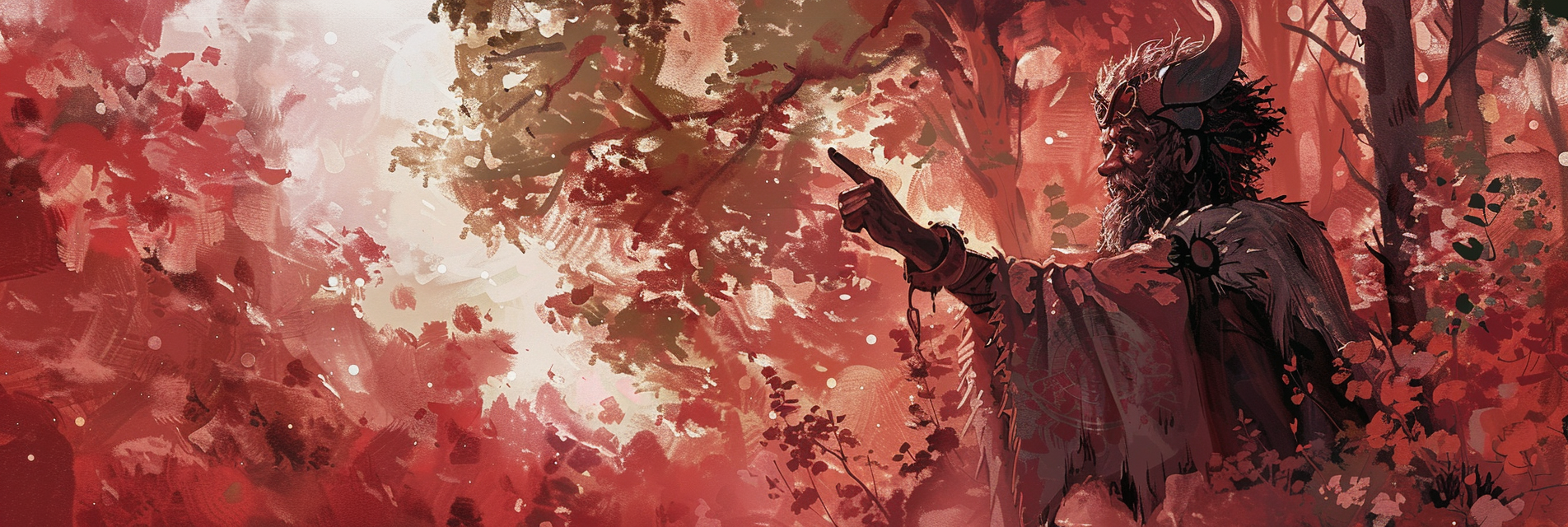Tenant
"Tenant" is a position given to select centaurs and satyrs of Herzströmen; while tenants were originally an annual position, the Half-Folk tribes eventually decided to make it a lifelong responsibility. The tasks ordained upon the tenants can be taxing, requiring mentally resilient volunteers. While the Half-Folk are sturdy in more ways than one, finding new members to fill the role of tenant every year proved impossible; those who had distanced themselves from the responsibility often swore off returning. With fewer volunteers year after year, the various tribes of Half-Folk decided to shift the role into a lifelong position.
Most Half-Folk of Eldurgrund live in the Kyte Forest: the territory given to them by the national governy. At the center of the Half-Folk territory is a keep known as Herzströmen; unlike most lordships, however, the Half-Folk keep serves no defensive role and rarely houses its people—instead, the centaurs and satyrs of the Kyte Forest break into wandering tribes, only returning to Herzströmen for the first month of winter. During this time, the Half-Folk trade goods and camp during the season's harshest period. Herzströmen is spiritually significant to its residents and must be protected for most of the year, even while abandoned by the tribes. To ensure the heart of their travel routes could be defended, the Half-Folk began electing individuals they now know as "tenants."
The Road to Madness
Only a few tenants remain in Herzströmen after their tribes return to wandering the Kyte Forest, meaning physical defense of Herzströmen isn't feasible. Instead, the tenants turn to the magical properties of High Cap, a mushroom endemic to the Kyte Forest. While the mind-altering properties of High Cap are used for spiritual purposes by the Half-Folk, they also help ease individuals into clairvoyant spells. In the case of tenants, High Cap is used to control local wildlife.
Tenants have created spells capable of dominating animals' minds, often more than one at a time. For most of the year, these Half-Folk consume High Cap and live in the bodies of animals, all to defend their keep. When combined with the social isolation that comes with the role, it's no surprise that tenants are often driven to madness.
High Cap is highly addictive with severe withdrawal effects. When the role of tenant was shifted annually, it was already difficult to find individuals willing to isolate themselves for a year, meaning prior tenants were often asked to return to their role. Those who had broken free of High Cap often swore it off, claiming their year of isolation proved too difficult to repeat. As a result, Half-Folk were eventually bound to their role as tenants. Unfortunate as it may be, it wouldn't be possible to maintain both Herzströmen and the Half-Folk way of life without such commitement.
Ever since tenants became lifelong devotees (ca. 1900 NG), its members have slowly delved deep into insanity. Decades of isolation and consumption of High Cap mean that most tenants are scarcely considered safe to interact with at the annual congregation of Half-Folk. Those who do choose to present themselves are supposedly animalistic and incomprehensible; above all, though, any tenants that remain sociable are said to be loving and wise. Perhaps they can no longer verbalize their thoughts to others, but they prove ever grateful for opportunities to see their people once more.
Sociable tenants tend to restrict access to those who are fully lost to their task, as they've become a danger to others. Even during annual celebrations, these elderly madmen continue to inhabit the minds of animals, vigilantly guarding the reservoirs of Herzströmen while their catatonic bodies sleep in the chambers of the natural dams. Today (ca. 1960 NG), most lifelong tenants are still alive, deep into their elderly years, but the concern of replacing them has grown.
Initially, making the role a lifelong task was so those who broke free of the High Cap's influence couldn't refuse the responsibility. Or rather, it was to prevent tenants from breaking of the High Cap's influence in the first place. Now, denizens of Herzströmen have seen tenants reduced to irreparable madness and themselves refuse to fall victim to the same fate. While greater organizations across the Augury have managed to circumvent such concerns through prestige or deeply engrained devotion to institutions, the Half-Folk currently lack any such societal boons. As efforts to find upcoming tenants fail, the wisest tribe leaders scramble to find alternate solutions.
Akin to Witches
Several greater lordships claim land across Eldurgrund and dozens of lesser lords (or 'vassals') settle beneath them. With marriage politics playing a major role in the governy, it's no surprise that congregations and banquets often devolve into rumormongering and gossip. As such, there are already greater lords and vassals subject to criticism for their ways of life. The Rimetusk Clan is often scrutinized for its seclusion while the Heisel Family of Urrlógun is mocked for "Mingling with the commonfolk." The Threadweaver Family of Peatwood gains ire for the choice of land in the swamps; supposedly, the land was cursed in the dark era of Ettermiddag. Peatwood's denizens are often accused of witchcraft and bizarre experiments. Unfortunately for the Half-Folk, a popular theory of their origin is wrapped up in evil Threadweaver experiments. The people of Eldurgrund already have divisive opinions of Half-Folk. Those who live in secluded villages often think they're a thing of myth and treat them with curiosity at first meeting. Large groups, often those in the southwest of Eldurgrund, subscribe to a litany of bizarre theories about their origin. Those who often engage with Half-Folk or live in the upper echelon of society often view them as no different from the peasantry (which has several implications, when observing folk aside from humans). Regardless, paranoia and lack of understanding make the Half-Folk appear alien from the outside, and the presence of tenants hardly improves the optics. Outsiders will point to tenants and their 'dark magic' as ironic consequences finding their way to the Threadweaver Family, claiming that the "experiments are rising above the creators." Of course, the two peoples are on opposite sides of the nation, making it feasible that the Threadweaver Family are ignorant of the existence of both High Cap and tenants. False notions aside, the tenants do perform magic rather foreign to the greater establishment of Eldurgrund. While the nation toils away learning the facets of fire magic and valuable technology therein, the Half-Folk focus on manipulating nature. Controlling the minds of animals and extending their senses through the connected roots of grass are the most popular examples, but they only scratch the surface (and the implications of both are often ignored). With domination over wildlife, tenants can control the waterways. Beavers may build dams and redirect rivers at their command while alligators are moved to line waterways overexploited by outsiders. Sensing through the grass can help determine if a small group of men are wandering the forest or a platoon of dozens. They can command the trees to redirect wind, slowing the travel of larger ships and domineering crop pollination. Luckily, they also use their power to maintain the roads, though it is intended to discourage travelers from straying into the forest. Legends of passersby often describe leaving the trail and feeling a deep sense of dread as the shrubbery shifts around them, creating mazes that perpetually lead them back to the roads. While tenants prioritize misdirection above all, the Hellstrom Governy grows concerned about behavioral changes over time. Should their madness continue, what methods will the elderly witches turn to? Contingencies for such interactions are being made, but no formal plan with the people of Herzströmen has been defined. Governor Hellstrom fears that discussing contingencies may threaten relations with the Half-Folk, but if the tenants commit violent acts, public opinion of Herzströmen may be irreparably damaged.
Type
Religious
Related Locations





Comments